Herbal Remedies: Growing Your Own Medicine Cabinet
Crisp nights, frosty mornings, even the first few flakes of snow--as winter settles in and we all begin spending more time indoors, germs and viruses begin to spread. There has never been a better time to take advantage of the rich traditions of New England folk wisdom, extensive knowledge of botany, and years of gardening experience packed into this perfect introduction to herbal medicine.
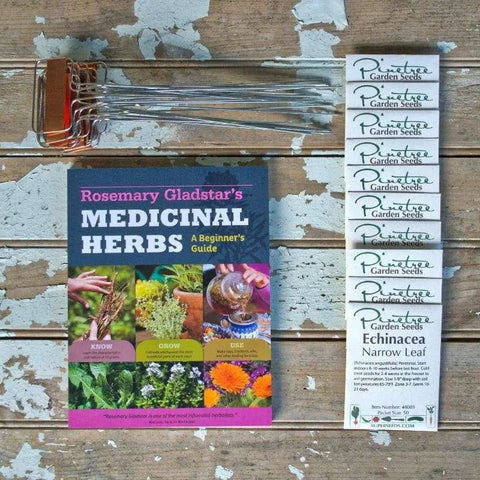
Here's what's in there (and why):
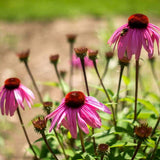
Narrow Leaf Echinacea: A perennial, pollinator lover, and native to North America, Echinacea is most often used to fight the common cold. All parts of the plant (but mostly the root) carry anti-viral, anti-inflammatory and anti-bacterial compounds. Steep it in hot water for 10 minutes, strain and sip it 2-3 times a day at the first sign of the sniffles.
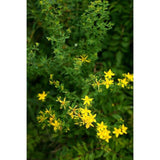
St. John's Wort: A flowering perennial shrub recognized widely for it's ability to combat depression, reduce anxiety and regulate mood swings. Though it is often prescribed, its components are highly interactive with other drugs - ALWAYS consult your physician first.
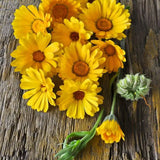
Resina Calendula: This 'sunshine herb' is flooded with flavonoids - an anti-inflammatory agent. The resin from the flower holds most of the medicinal magic. Pinch the flower heads, dry the petals and use in teas, tinctures, salves or even dyes. It's an annual rockstar in the garden too: attracts pollinators, protects the soil and 'traps' pests keeping them off of more vulnerable plants.
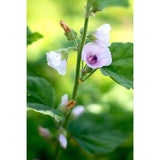
Marshmallow: The leaves and roots of this 4-foot-tall herb contain polysaccharides with anti-bacterial and anti-tussive properties to help reduce dry cough, ease sore throats, and aid heartburn, indigestion and other digestive ailments. Best in teas or tinctures.
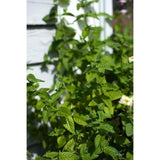
Mint: A true herbal classic, mint relieves symptoms of nausea, works great as a digestive aid, freshens breath and even calms anxiety. How? The volatile oils - or the aromatic components of the plant - reduce tension and encourage relaxation. Think of how calming a fresh cup of mint tea can be in the middle of a busy day (or holiday season).
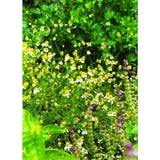
German Chamomile: A popular bedtime tea ingredient thanks to its mild sedative qualities, this perennial herb also makes an effective digestive aid gentle enough for young ones too. It's anti-septic and anti-inflammatory - soak a cloth in chamomile tea and apply topically to soothe skin and help prevent infection. Prefers cooler temps - make sure to protect it from hot summer sun!
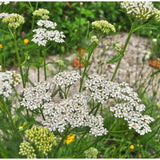 White Yarrow: Did you know Yarrow can be used to treat nosebleeds? Simply pick the leaves, roll them between your palms to release the oils and place them inside the nostril until the bleeding subsides. Taken in tea form, yarrow can induce sweating to help combat the effects of high fevers. It's versatile in the garden too: a great companion plant to garlic, lavender, beans and more.
White Yarrow: Did you know Yarrow can be used to treat nosebleeds? Simply pick the leaves, roll them between your palms to release the oils and place them inside the nostril until the bleeding subsides. Taken in tea form, yarrow can induce sweating to help combat the effects of high fevers. It's versatile in the garden too: a great companion plant to garlic, lavender, beans and more.
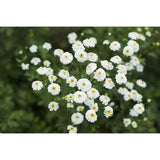
White Pompon Feverfew: A go-to for headache relief, Feverfew can help lessen the severity and duration for migraine sufferers - when taken regularly. It repels bugs AND pollinators so plant somewhere away from the buzzing wildlife. You can eat the leaves directly but be sure to give them a good rinse (aphids will stick).
Elecampane: Get down to those roots - they carry inulin, mucilage, camphor and more. Elecampane possesses an expectorant quality suitable for treating respiratory illnesses. The essential oils can be diluted with a carrier oil and applied topically to treat eczema and other skin irritations.
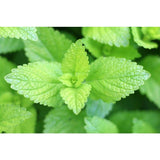
Lemon Balm: A member of the mint family, the secret ingredient is rosmarinic acid: a compound with antioxidant and antimicrobial properties. Regular consumption of lemon balm tea, especially during the change of season, helps keep cortisol levels under control fortifying your immune system and alleviating stress.
As with any at home remedy, please consult your primary care physician first. What works for some, may not work for you and it's important to prioritize the needs of your body before experimenting with ingesting or topically applying an unfamiliar herb. We may sound like we know a lot, but no Pinetree employee is an actual licensed physician.
What herbal remedies are commonly used in your household pantry and medicine cabinet? How do you prepare and consume them? Share your family folk's wisdom in the comments - and consider sharing our new Healing Herbs collection with loved ones this winter. What could be better during these (never-ending) trying times than sharing the gifts of growth and health?
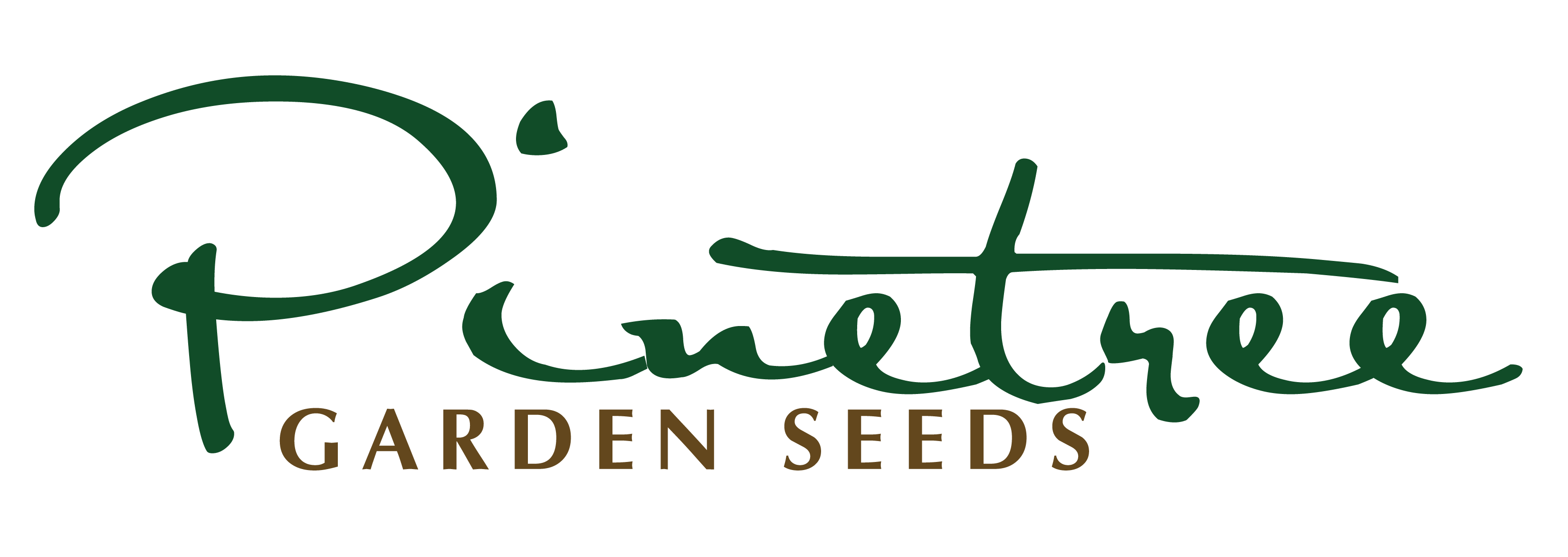

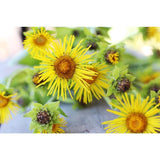
Hi Carol,
They’re available as a collection – if you scroll to the top, you’ll see a photo of the collection as it appears in our online store. There is a link in blue above it titled “Healing Herbs Garden Kit!” Hope this helps!
I am looking at your healing herbs collection. Are these available as a collection or only through their individual links?
We combine our homegrown chamomile & spearmint to make an excellent tea for a plethora of ailments.
We also dry yarrow leaves, then make them into a powder to help stop bleeding.
Our lemon balm is used for medicinal tea.
We also dry a variety of herbs for culinary purposes.